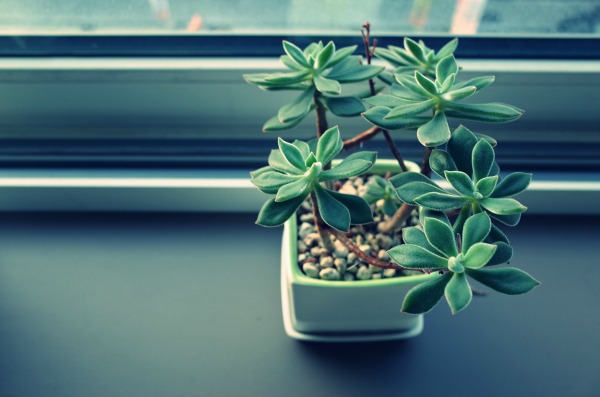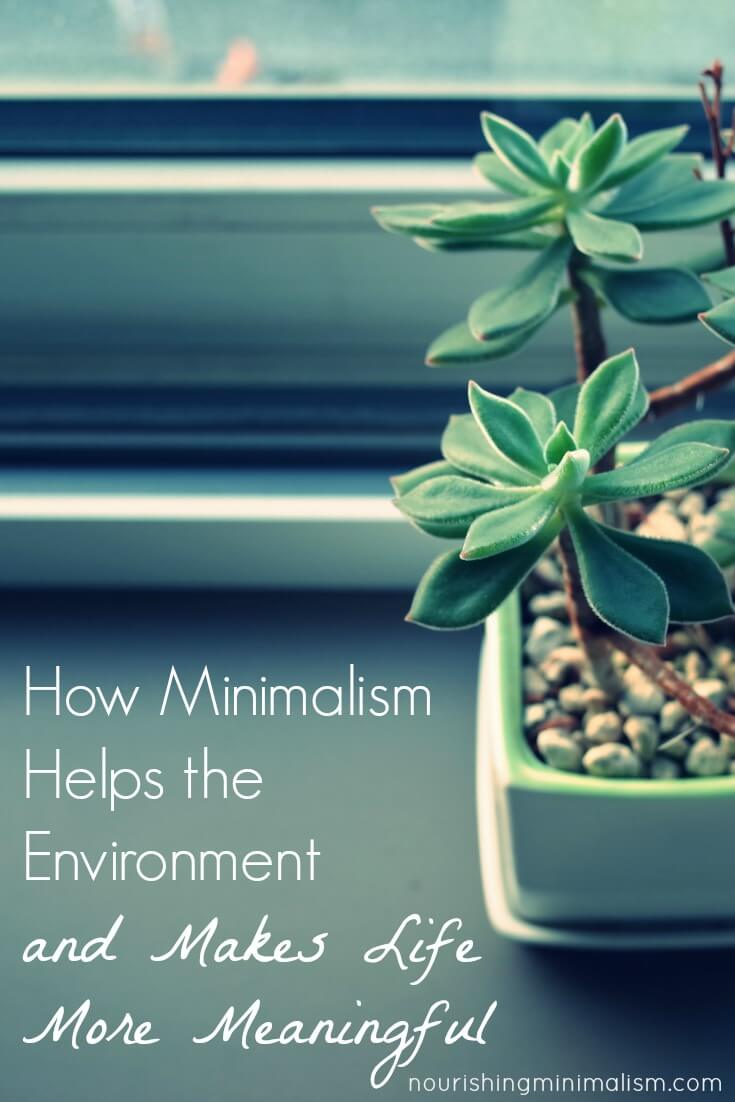How Minimalism Helps the Environment and Makes Life More Meaningful {The Benefits of Minimalism Part 3}

Minimalism = Environmentally friendly
Minimalism flows smoothly into helping our environment. When one embraces minimalism, there is a desire to use items for multiple purposes, to purchase things that wear well and serve them for a long time. Instead of buying a new set of plastic measuring cups every other year, invest in a quality set; one that will last the rest of your life.
Because you are in the habit of putting things away as a minimalist, it’s easier to remember the reusable bags when going to the grocery store.
When embracing minimalism as a family, we are teaching our children to take care of the things that we have, and not fall for the gimmicky cheap junk that so quickly ends up in the landfill.
Minimalism means buying quality clothing, that can be mixed and matched throughout the years, understanding your personal style, and not being drawn to the fast-fashion industry that wants you to be discontent with an item that you purchased only last week.
By being more mindful of what you purchase and consume on a regular basis, you are automatically decreasing your environmental impact on the world. Because you no longer buy things on a whim, you may even research a bit before a purchase means it’s easier to invest in one high-quality pair of jeans, when you know you only need one pair of jeans for the next few years.
It means you’ll be washing clothes less. Because the children only have a set amount of clothes, no longer are the clean and dirty mixed together on the floor, needing everything to be washed each week.
Maintaining a clean and tidy home takes fewer chemicals because you’re no longer searching for the magic spray that you can spray over the area and rinse dirt away. (We all know it doesn’t work like that). Instead, since spaces are clear and surfaces are open, it’s easy to maintain a clean area and dirt doesn’t get built up.
Minimalism = Helps you focus on what’s important
When the focus is placed on the peace and shared input from family members, rather than concentrating on frustrations, a minimalist lifestyle can lead to improved relationships.
There are fewer arguments about who should take care of what, and more just being together.
When you clear out the excess, you will find more time in your schedule and more time to spend with your loved ones.
You will be able to see them, and they can honestly see you. Some people end up recognizing problems they were avoiding because they were distracted by the piles of stuff. This can be difficult at first, but dealing with issues leads to authenticity developing, relationships can deepen and become more meaningful.
Minimalism = Joy in living the life you want to live
There is often more baggage tied up in stuff than we realize. We hold onto things for so many reasons, most of which drag us down, rather than lift us up.
Also, when you’re living in a state of overwhelm, running to hide when the doorbell unexpectedly rings, whether you realize it or not, self-confidence takes a beating. It’s common to get trapped in negative self-thought that perpetuates the problem.
With minimalism and less to manage, clean and clear spaces surround you and boost your spirits, it’s easier to be present with your family and with whatever situations come up in life.
When you learn to embrace who you indeed are and be comfortable in your own skin, it’s easier to find joy in the little things.
Minimalism = Improved health
Minimalism means that you have more time to do healthy things – take up a new hobby, go for a daily walk, eat food that makes you feel good.
Imagine how it will feel to go for a walk without feeling like you’re neglecting your mile-long to-do list? Or to be able to sit and sip tea while reading a book and know that you aren’t procrastinating, you are relishing a relaxing moment.
With less stuff in the home, allergens are reduced, it’s easier to clean regularly, and the chance of mold and pests hiding in storage areas is gone.
How Minimalism Benefits series:
- How Minimalism Gives Less Stress and More Clarity {The Benefits of Minimalism Part 1}
- How Minimalism Frees up Emotions, Finances & Time {The Benefits of Minimalism Part 2}


We have several group homes in my city, also a low income apt complex for elderly that all got donations over recent months. I have downsized for several months as we are getting ready to move into a smaller place and sell house as retirees. I don’t miss anything donated because items weren’t being used or worn for sometime. When I purged, it slowed down after awhile, then some things became a “maybe pile”. It sat for a month, then this week, sorted the rest to donate to two sources. When decluttering to move (or other reasons) as stuff is more thinned out, it becomes easier to make decisions seeing what will not be used or worn in the future. But maybe piles can be boxed up and set aside for later on, this makes it easier to purge.